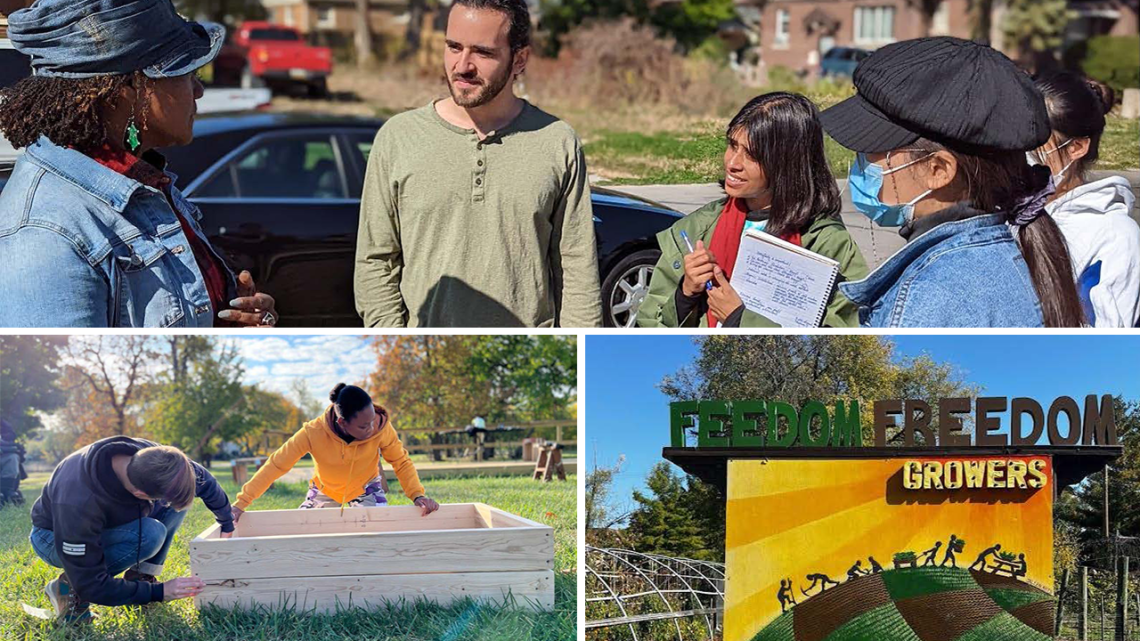
Students gathered in Detroit to further developed listening, reflecting, translating, and visioning frameworks for a community-driven project in support of several of the Sweet Water Foundation's Values-Based Partners.
News directly from Cornell's colleges and centers
There grows the neighborhood: partnership with the Sweet Water Foundation transforms students’ understanding of urban renewal
By Molly Sheridan
When students first arrived in Chicago for an immersive, four-day learning experience hosted by the Sweet Water Foundation (SWF), cofounder and Executive Director Emmanuel Pratt (B.Arch. '99) challenged the group to immediately unpack their perspectives through their first task: shoveling soil into containers. It was perhaps not quite the transformative community-building work they had been anticipating until he helped them make the connections across scales. "How many seeds can you plant in a pot?" asked Pratt. "How many households now are relying on this garden bed because they just closed the Whole Foods they put some $20 million into over the past six years for proposed development? And now there's a domino effect of scarcity due to the war in Ukraine and COVID-19, which affects our agricultural industry." It was a shift in viewpoint and, ultimately, a perfect place to begin.
The partnership between Cornell AAP and the Sweet Water Foundation serves as a cornerstone for this fall's Inclusive Urban Development course taught by CRP Lecturer Mitch Glass and cosponsored by the Cornell Mui Ho Center for Cities and the Department of City and Regional Planning. As part of the class, 10 planning, architecture, and landscape architecture students traveled to Chicago in September for a "dis-orientation + re-orientation" session at the foundation's four-city-block campus. Known as The Commonwealth, it is situated on the city's South Side at the intersection of Englewood and Washington Park, two communities that have endured decades of disinvestment. The space now hosts a vibrant urban farm planted across formerly vacant lots, and foreclosed and abandoned structures have been turned into meeting, workshop, and educational spaces through the collaborative work of the foundation and local residents.
This time in the field served as a dynamic, hands-on introduction to SWF's practice of Regenerative Neighborhood Development. Students worked alongside the foundation's core team and community members — in the gardens, on construction projects using reclaimed wooden pallets, and during meetings and meal prep. Throughout, they practiced deep listening, recognizing the importance of embodied knowledge in communities and reaching a greater understanding of how urban form is often impacted by long histories of systemic racism and redlining.
Continue reading on the Architecture, Art, and Planning website.
Media Contact
Get Cornell news delivered right to your inbox.
Subscribe
